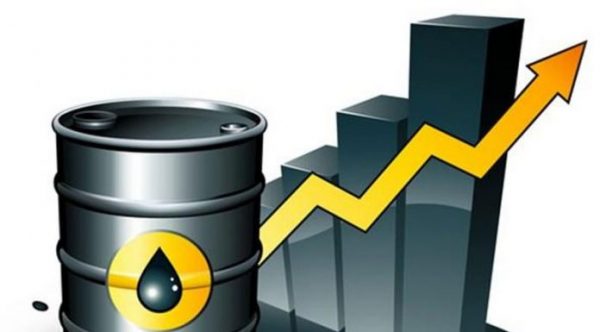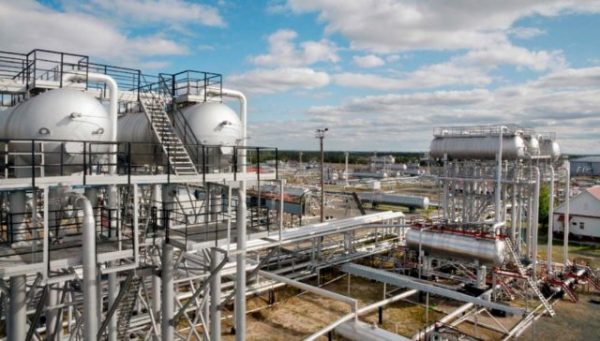NNPC To Trim Lifters of Nigerian Crude To 16

The Nigerian National Petroleum Corporation (NNPC) has said that it hopes to introduce commercial certainty in the sale of Nigeria’s crude grades in the international market starting from January 2016.
NNPC said on Tuesday at the opening of technical and commercial bids submitted by 278 firms for the purchase and sale of Nigeria’s crude oil that starting from January, it would deal with just about 16 oil lifters, effectively cutting down the number from 43.
Some of the companies that submitted bids to procure and sell Nigeria’s crude included Kinsfield Energy, Obat Oil, Dilas Hamilton, MRS Oil, and Northbridge Energy, among others.
Their bids were opened and crosschecked by the corporation’s General Manager, Supplies Chain, Sophia Mbakwe, in the presence of independent assessors that included the Nigeria Extractive Industries Transparency Initiative (NEITI) in Abuja.
The corporation’s Group Managing Director (GMD), Dr. Ibe Kachikwu, had earlier stated that the process would be transparently conducted to select competent and credible off-takers, adding that the corporation would remain impartial in its assessment of the bids.
Providing more details, the Group General Manager, Crude Oil Department of the NNPC, Malam Melee Kyari, explained that the corporation decided to introduce new terms in its sale of the country’s crude to off-takers following instances of phony supply gluts and subsequent instability in prices.
He noted that the corporation would ensure that it creates stability and predictability in the sale of Nigeria’s crude oil, adding that it had decided to cut down on the number of off-takers to accommodate and guarantee supply to would-be users.
“As you are aware, we have clear objectives and that is to make sure that our crude oil ends with the ultimate end user. What that does is that it balances our pricing and we don’t have these shocks that we are having and Nigeria does not become a major contributor to the instability in the crude oil market which is happening today.
“The absence of credible buyers has resulted in situations where individuals pick cargoes and they will not know what to do with them and at the end of the month it becomes an overhang; then we have fake supply glut or oversupply that do not exist but which the market reacts to and we have lower values,” Kyari said.
He added: “Our first reaction to that is commercial and it is to make sure that we optimise the value of our crude and for you to do that, you must get credible and reliable customers who also need you in the sense that they need to lock down their deals.
“This means to have buyers who take crude from the intermediaries, and they need to be guaranteed that every month they will have supplies; some level of stability that will enable them plan. What that does for us is that it stabilises our prices and optimises our value.”
On the decision to cut down on the number of lifters, he said: “We realised that in the past we had a large volume of buyers, 43 to be precise, and what that meant is that every month we were unable to guarantee off-take to any of the customers.
“That opened room for optimal discretion, which created problems because you were unable to satisfy any of the customers and at the end of the day, the market became unstable and we had lower government revenue.
“Our objective is to cut down that number and that means that we will come down from 43 to something smaller. We are thinking in the region of one-third of that number – probably 15 or 16 – and that will be an optimum number.
“Once we are able to do that, then we will need to as a market strategy sell to people in groups because this market has categories of buyers such as the refiners who are the ultimate off-takers but don’t come out in reality to buy crude on their own and therefore the closer you get to them, the better for you and therefore we know that there is a category called refiners.”
Speaking on NNPC’s strategy to also avoid being ambushed by some segments of the market, Kyari said: “We also have trading companies as another category. We also have producing companies that have trading companies and these are large volume buyers of crude oil.
“We also have Nigerian companies who do business with us and should be recognised as well.
“In that basket, we will need to spread it and don’t just sell to only one group. The risk of selling to just one group is that they can take you hostage and anyone of them that realises that you are stuck, you will be in trouble.
“So to avoid this, we are going to spread to across these groups so that at the end of the day we have buyers from all of these categories and that creates a landing that optimises value for us and the issues around dampening of price will not happen.”
He also spoke on the marketing strategy that will be employed in the January 2016 lifting regime, stating: “Our target is to make sure that this process becomes effective for our loadings in January.
“What it means is that we load two months ahead and therefore, we must have these contracts on ground latest by the end of November, otherwise we will not use it for the January programme and so our objective is to make sure that it is available for the January loading.
“There is of course going to be some impact, you will see that the market will react tomorrow because the moment the market realises that Nigeria’s crude supply will be stable, predictable from January, the sales for January will be reflected.”
According to him, the quantity of crude that would be committed to the process would depend on the government’s entitlements from the the country’s total output.
“Usually, government’s entitlements is in the region of 950,000 barrels per day (bpd), so our contract will be limited to that,” he said.
Speaking further, Kyari said: “What we have done is to change some of these terms so that at the end of the day, we will have a more robust and internationally accepted framework where our customers’ observations are taken on board.
“We want to make that available to competent people and make sure that at the end of the day, people who are credible are those who will do business with us and we will seek their views on the changes we are going to introduce.
“Our selection is going to be based clearly on people who are able to take our crude to the market and no other consideration will come into play. We have seen big time companies that usually don’t participate in our bid processes.
“We are going to cut down the number of buyers substantially and we will probably be dealing with about a third of that number and we will make sure that it is delivered so that at the end of the day, every customer will have the chance to plan his lifting programme, lock down their deals and be sure that they will get volumes. The fewer people we deal with, the better for all of us.”
The contract for the engagement of qualified and reputable companies for the sale and purchase of Nigerian crude grades is being conducted in consonance and in pursuance of the provisions of the Public Procurement Act and the Bureau of Public Procurement (BPP) guidelines.
As part of the pre-qualification requirements, interested companies will be required to have a minimum annual turnover of $750 million and net worth of at least $300 million, ability to establish an irrevocable Letter of Credit for the payment of any allocated crude oil subject to the contract terms, as well as the ability to pay an initial deposit of $2.5million, representing the first lifting deposit upon signing of the contract agreement, among other requirements.
The 26 grades of Nigerian crude on offer include Bonny Light, Forcados Blend, EA Blend, Bonga, Qua Iboe Light, Yoho Blend, Erha and Escravos Light.
Others are Pennington Light, Agbami, Brass Blend, Abo, Oyo, Okono Blend, Amenam Blend, Akpo Condensate and Usan.
The rest include Atam Blend, Okwori, Okoro, Ima, Ukpokiti, Obe, Okwuibome, Ebok and Asaratoru.








